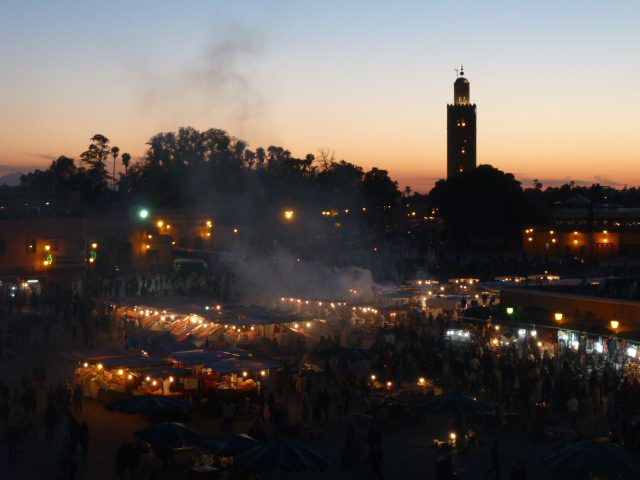
We’re just back from a movie theater screening of a performance of Shakespeare’s King Lear from National Theatre Live. The play was filmed on the stage of the Duke of York’s Theatre, in the West End on St Martin’s Lane, in the City of Westminster, London. Sir Ian McKellen was superb in the title role. The other performance that really struck me was Kirsty Bushell’s increasingly mad and sociopathic Regan.
Unfortunately, there was a syncing problem, with the sound following a split second behind the actions on the screen. It was slightly irritating, at least at the first. Moreover, the sound was sometimes just a tad muddy. And, at one point, one of the mikes had real problems.
But attending the play tonight was considerably cheaper than flying to London would have been.
***
My wife has lately been reading a great deal by and about Elie Wiesel for a presentation that she’s shortly to give. Tonight, she called the following passage to my attention from Wiesel’s All Rivers Run to the Sea: Memoirs (Knopf/Doubleday, 2010), and I thought that others might find it of interest. It refers to a visit that Wiesel made to Morocco quite a few years back, after the Second World War:
A dayan (rabbinical judge) showed me some unknown mystical writings attributed to the sages of Fez. A rabbi told me little-known anecdotes about Maimonides’s years in Morocco. Here, as in Spain, the Jewish past was pervasive. The Jews in Morocco seemed attached to their soil and to their sovereign. I was surprised at their praise for the sultan, Mohammed V, but I should have known better. The sultan had protected his Jewish subjects during the war, standing up to Vichy and the Germans alike. Not a single Moroccan Jew was deported. Rich Jews maintained friendly relations with rich Muslims. And yet. Many Moroccan Jews planned to make aliyah, to “ascend” to the Holy Land, because the future was uncertain. Signs of dislocation were appearing in this energetic, exuberant community. My companion, the emissary of the Jewish Agency, predicted that few of its 250,000 souls would remain. But if things were so good in this beautiful land, why would the Jews want to confront the unknown? Ifergan’s answer: “For a Jew Israel is never the unknown.” I recalled the Jews of my city. How was it that the Moroccan Jews were more perspicacious and audacious than those of Sighet in 1940–44? And thanks to the World Jewish Congress, and the Jewish Agency, nearly the entire Moroccan Jewish community emigrated to Israel between 1952 and 1956.
***
In this context, some might remember (or might be interested in) a colum that Bill Hamblin and I published in the Deseret News back on 13 April 2018:
“Where Jews, Muslims have lived in relative harmony”
***
And while we’re thinking about Morocco during World War Two:
I met someone a while ago who had actually never seen the great movie classic Casablanca. Hard to believe. I think that he must be violating some kind of law. If you haven’t seen Casablanca, you need to repent immediately and take steps to remedy the deficiency.










